- The Cadillac Escalade IQ now sits at the top of the Edmunds EV Range Test leaderboard.
- It drove 558 miles, outperforming the EPA's estimate by almost 100 miles.
- At our test track, however, the Escalade IQ put in a less impressive performance.
Tested: 2025 Cadillac Escalade Has Huge Range But Drives Like a Big Truck
At 558 miles, the electric Escalade is our new range test champ
Well, that didn’t take long. Just a few weeks ago, the 2025 Chevy Silverado EV became our new Edmunds EV Range Test champion. But its reign was short-lived — the 2025 Cadillac Escalade IQ just stole the crown.
We used an Escalade IQ Sport 2 trim, with 24-inch wheels and two electric motors. It comes more or less fully loaded, but with the optional rear seat entertainment system and matte blue paint, the IQ costs just shy of $160,000 including destination.
A new standard for EV range
We knew that the Escalade IQ would perform well on our test, given the impressive range we've experienced in its Chevy Silverado EV and GMC Sierra EV siblings. The EPA estimates the Escalade IQ can travel 460 miles on a full charge, but in the official Edmunds EV Range Test, we recorded 558 miles. This is the first time a vehicle has broken the 550-mile threshold out of the more than 100 EVs we've tested.
At our range test's required 40-mph average speed, which uses a split of 60% city and 40% highway driving, the IQ racked up more than 13 hours of drive time, requiring a team of three people to do the job. Keep in mind that's not including any breaks or traffic stops, just time while the car is on the move.
Diving deeper into the numbers, the IQ used 43 kWh of electricity per 100 miles of driving, making it less efficient than a Rivian R1S (41.7 kWh) but more efficient than the Mercedes G 580 EV (47.6 kWh). But the reason for the Escalade's success isn't its overall efficiency — it’s the sheer size of the battery. The big SUV's battery capacity is 205 kWh, which is enormous compared to the packs in other three-row EVs like the Volvo EX90 (107 kWh) and the Rivian R1S (up to 141 kWh).
General Motors' other large EVs use a similar battery as the Cadillac. Out of the six that we’ve tested, the Escalade IQ’s 558-mile range was the winner by huge margin, beating the Silverado EV Work Truck (539 miles), the GMC Sierra EV Denali (507 miles), the Silverado EV RST (484 miles) and destroying the GMC Hummer EV’s 325-mile (SUV) and 390-mile (truck) tests.
Escalade IQ at the track
While the Escalade IQ was very much at home racking up miles on the Edmunds EV Range Test, it wasn't nearly as impressive at our test track. We started by weighing the car, which immediately caused a problem: The IQ was too heavy for our scales, which have a 9,000-pound capacity. Yeesh.
On our acceleration straightaway, the Escalade got up and moving from 0 to 60 mph in 4.9 seconds and kept pushing through the quarter mile in 13.1 seconds at 108.1 mph. To put it plainly, if you want your electric SUV to be quick, then you’re better off buying something else. We tested a Rivian R1S with the Max battery pack earlier this year, and it hit 60 mph in 3.7 seconds and completed the quarter mile in 12.1 seconds.
2025 Cadillac Escalade IQ | Edmunds Test Results |
|---|---|
| Battery | 205 kWh |
| Motors | two |
| Output | 750 hp |
| Torque | 785 lb-ft |
| Transmission | single-speed automatic |
| Driveline | AWD |
| Weight | 9,500 pounds |
| 0-60 mph | 4.9 seconds |
| Quarter mile | 13.1 seconds @ 108.1 mph |
| 60-0 mph braking | 139 feet |
| Lateral grip (200-foot skid pad) | 0.73 g |
| Price as tested | $159,405 |
Braking also proved to be a challenge for the IQ: It stopped from 60 to 0 mph in 139 feet. That same Rivian did it in 128 feet, and other three-row EVs did even better (the Volvo EX90, for example, stopped in 121 feet). Finally, we used our 200-foot skidpad to measure the IQ's grip, which came in at a poor 0.73 g. Though, interestingly enough, that’s the same figure we recorded in the gas-powered Escalade-V last year.
Around the handling circuit, the IQ was more alarming than it was fun to drive. The 750 horsepower on tap was enough to get the SUV up and moving without any problems, but at speed, it was floaty and felt disconnected from the road. The four-wheel steering helped it get around turns well enough, but there's only so much that can help a vehicle that's this heavy with this little grip. This bruiser is much more at home cruising along at everyday speeds.
Photos by Ryan Greger and Keith Buglewicz
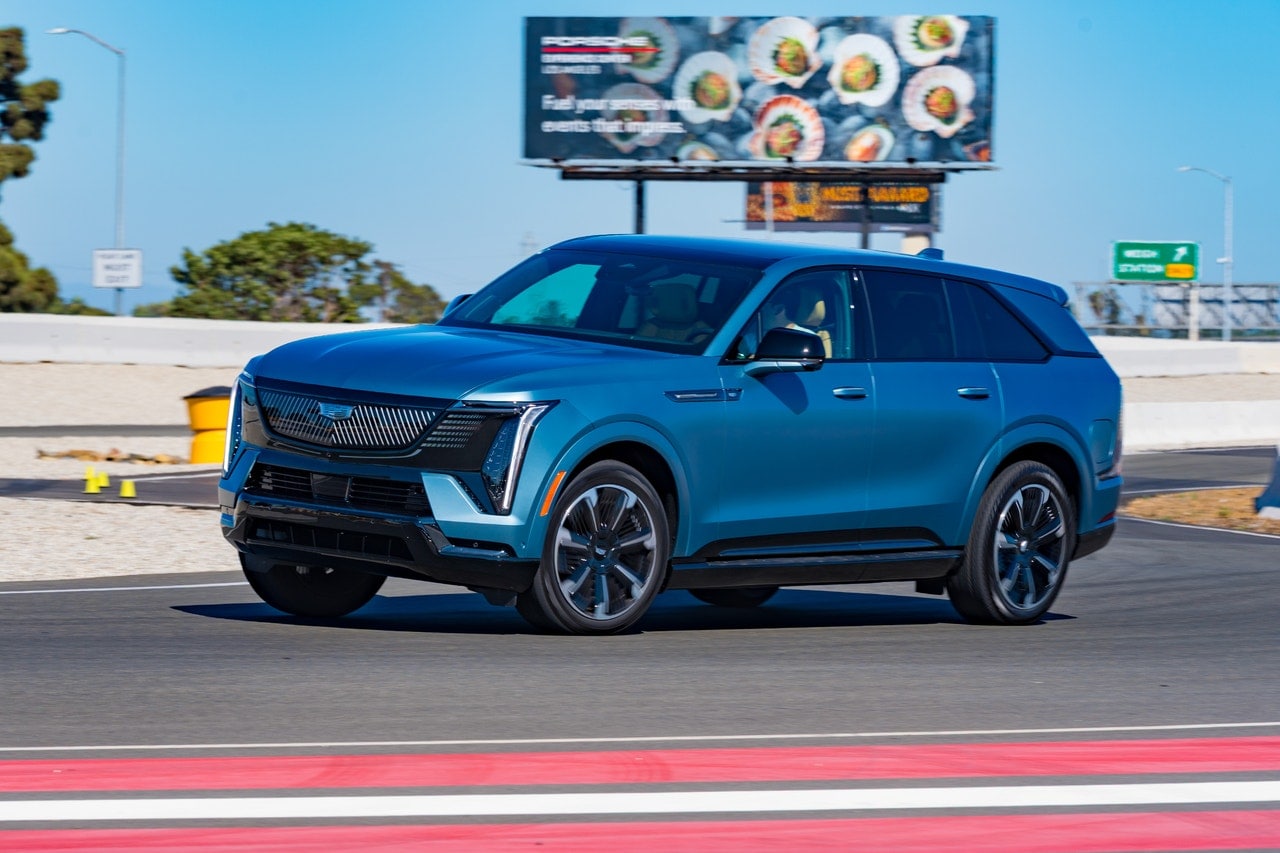
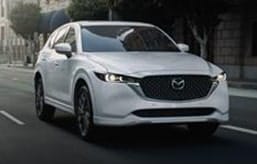
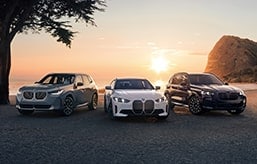
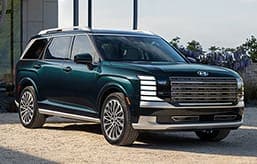
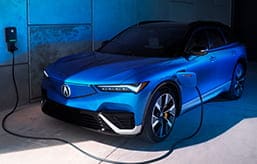
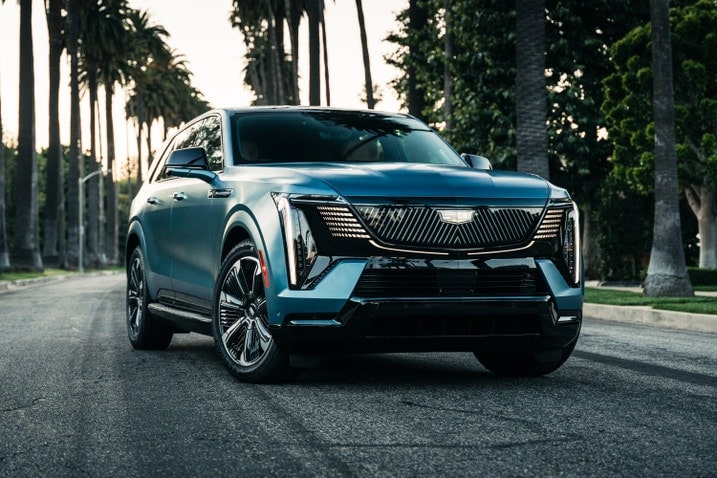
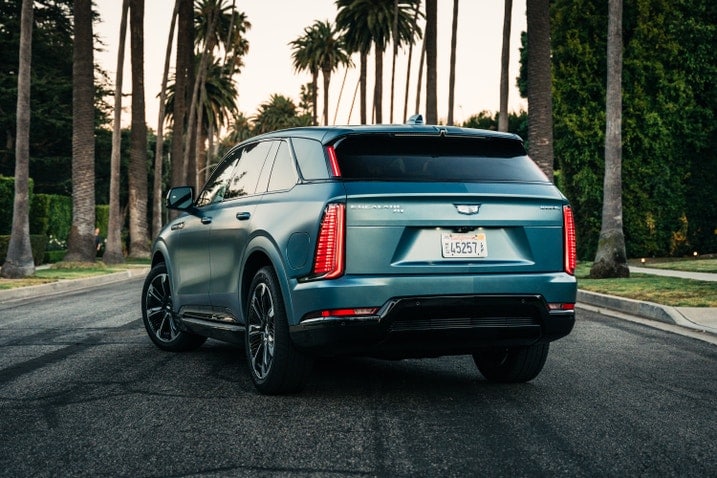
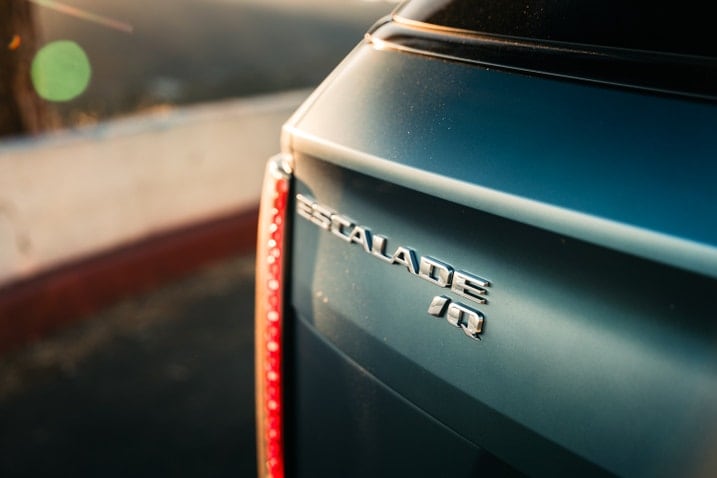
 by
by  edited by
edited by